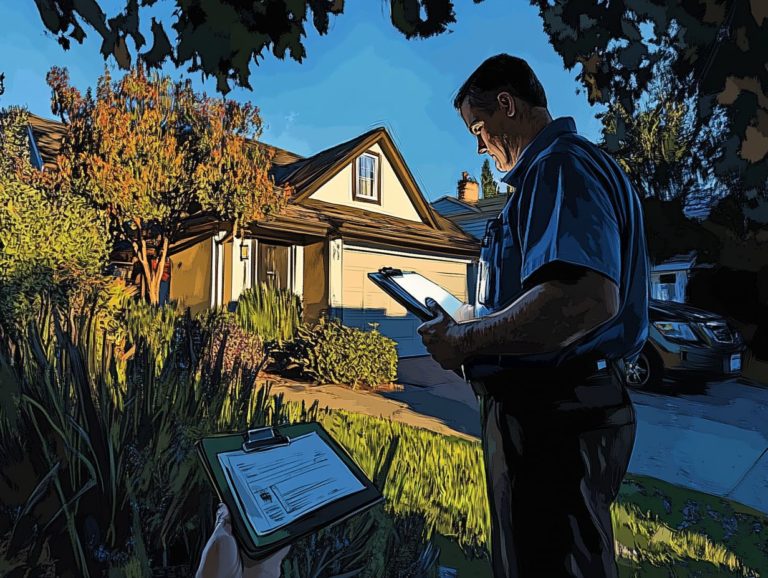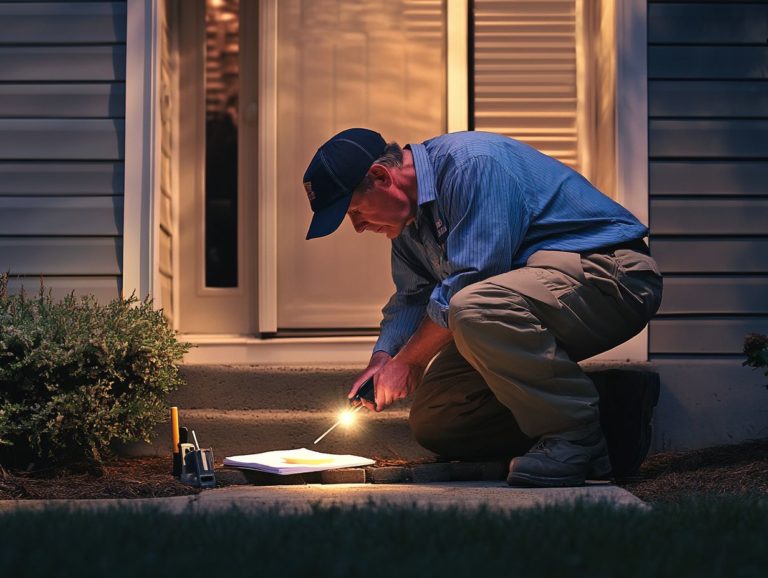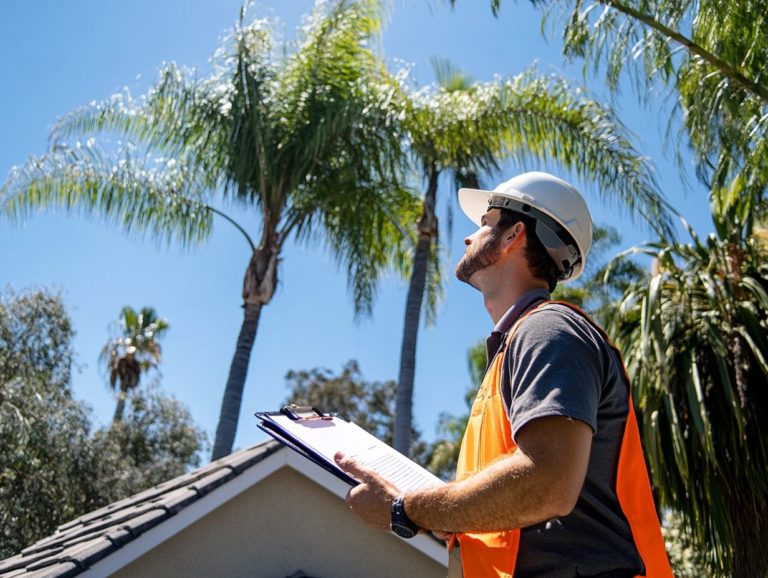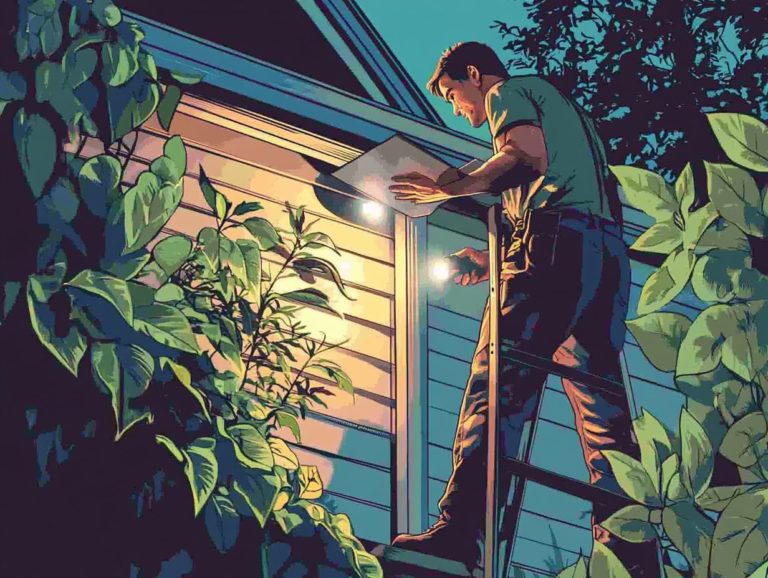The Benefits of Attending Your Home Inspection
Purchasing a home is undoubtedly one of the most significant decisions you ll make. A home inspection is a pivotal part of that journey.
Understanding what a home inspection involves is crucial. Your presence during the process and knowing how to interpret the findings can save you time and money.
This article will navigate you through the nuances of home inspections. It offers preparation tips and essential questions to consider, ensuring you derive maximum benefit from this crucial step in your home-buying experience.
Contents
- Key Takeaways:
- What is a Home Inspection?
- Why Attend Your Home Inspection?
- What to Expect During a Home Inspection
- Questions to Ask During Your Home Inspection
- Understanding Your Home Inspection Report
- Tips for Maximizing Your Home Inspection Experience
- Preparing for the Inspection and Communicating with the Inspector
- Frequently Asked Questions
- What are the benefits of attending my home inspection?
- How can attending my home inspection save me money?
- Will attending my home inspection help me understand the maintenance needs of my home?
- Can I bring my real estate agent to the home inspection?
- Are there any potential drawbacks to attending my home inspection?
- Is attending my home inspection necessary if I’m buying a new construction home?
Key Takeaways:
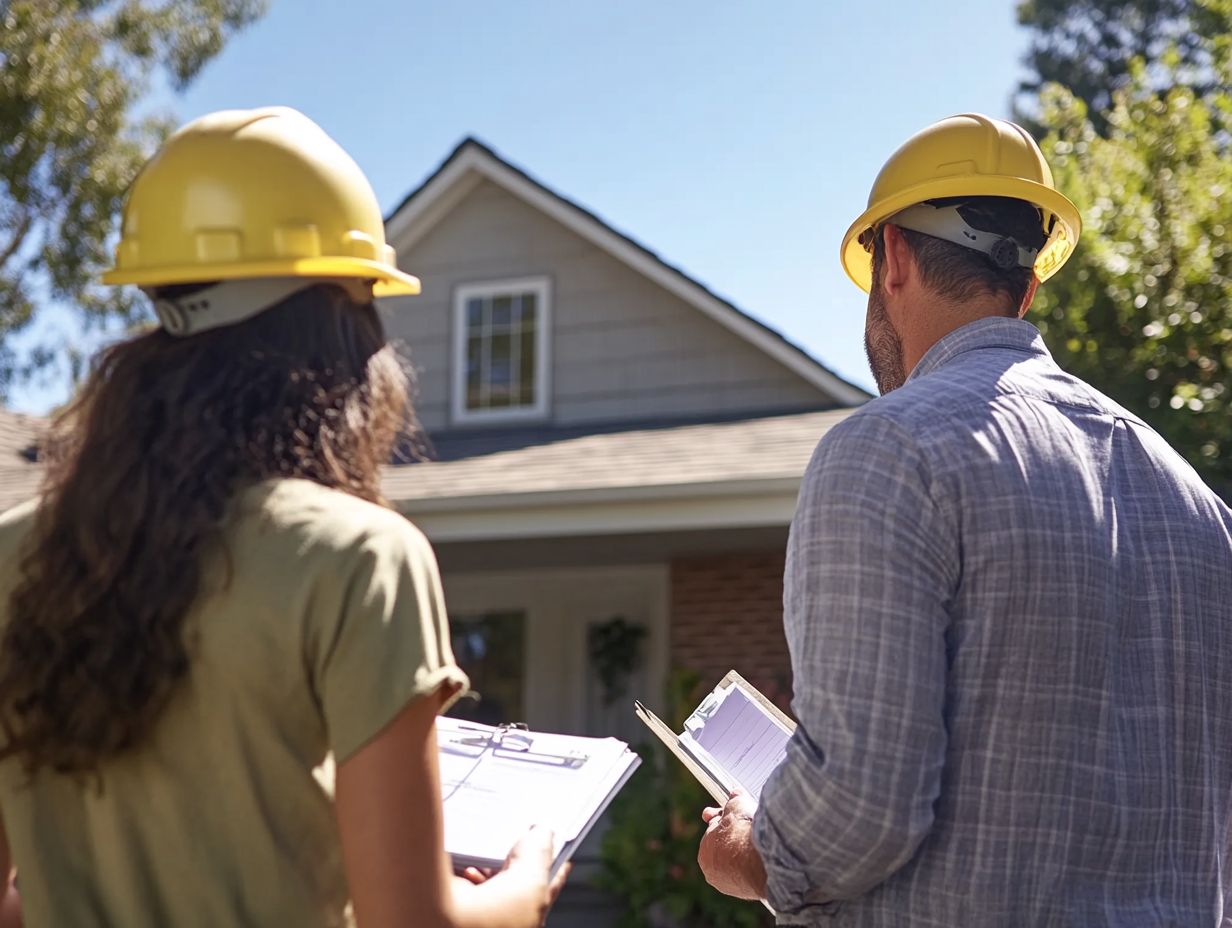
Being there during your home inspection is vital. It helps you fully understand the condition of your potential home and empowers you to negotiate effectively.
Asking key questions during the inspection can provide valuable insights. This helps you make informed decisions about the property.
Properly interpreting your home inspection report and communicating with the inspector helps you plan for necessary repairs. Additionally, understanding the benefits of pre-inspections can aid in negotiating a fair price for the home.
What is a Home Inspection?
A home inspection is an in-depth assessment of a property carried out by a qualified professional inspector. Its purpose is to uncover potential safety hazards, structural concerns, and various system malfunctions, including heating, ventilation, and air conditioning (HVAC), plumbing, and electrical issues.
This vital step in your home-buying journey enables you to grasp the overall condition of the property you re considering. It ensures you re well-informed about any necessary repairs or maintenance required before you seal the deal on your new home.
Definition and Purpose
The purpose of a home inspection is to provide you with a thorough understanding of the property’s condition. This ensures your protection and peace of mind throughout the home-buying journey.
This comprehensive assessment is designed not only to uncover major defects that could lead to significant financial burdens later on. It also highlights potential future repairs as the house ages.
By identifying these issues early, you can make informed decisions about the property’s value and the necessary investments it may require. A home inspection is also a powerful negotiation tool, allowing you to discuss repairs or request pricing adjustments with sellers based on the findings.
Essentially, a home inspection establishes the groundwork for a fair transaction. It fosters transparency and trust among everyone involved.
Why Attend Your Home Inspection?
Attending your home inspection brings a wealth of benefits, as it grants you firsthand insight into the property’s condition.
This knowledge not only enhances your understanding but also equips you with valuable leverage during negotiations, particularly in a competitive market.
Importance of Being Present
Being present during a home inspection is essential for you as a buyer. It allows you to voice your concerns directly, ensuring that every safety inspection is thoroughly discussed and evaluated. Additionally, understanding the benefits of a home inspection before selling can provide valuable insights for your future transactions.
Your presence fosters transparency and builds rapport with the inspector. This creates a collaborative atmosphere.
By actively participating, you can ask targeted questions about necessary repairs, potential pest infestations, or any structural issues that might easily slip under the radar. This ongoing dialogue is crucial; it enables you to make informed decisions about your investment.
Additionally, witnessing the inspector’s process firsthand gives you a deeper understanding of the property’s condition, which further bolsters your trust and confidence in the transaction—especially when you consider the benefits of home inspections for sellers.
What to Expect During a Home Inspection
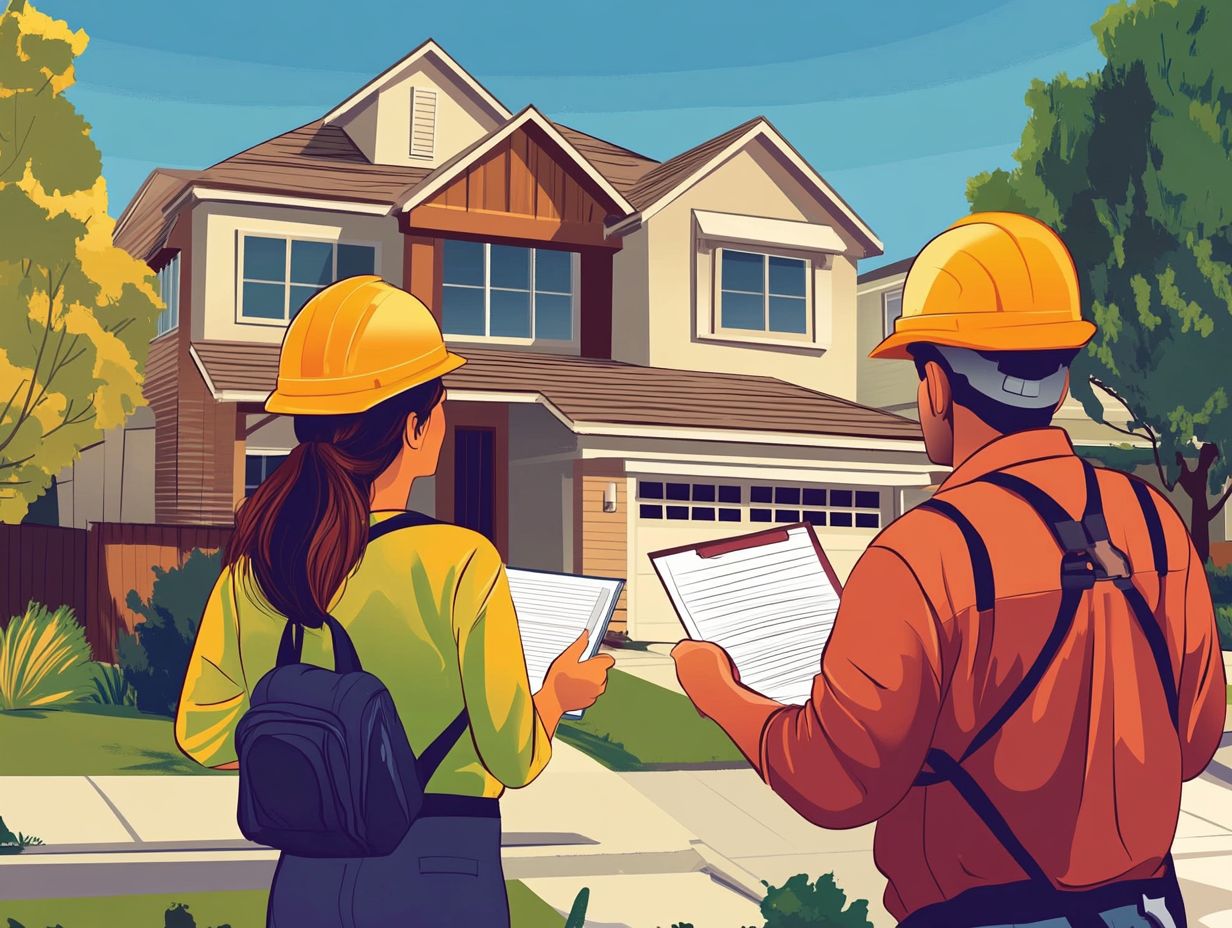
During a home inspection, you can anticipate a thorough evaluation that covers a multitude of aspects of the property. This includes an assessment of the roof’s condition, checks on the foundation, and scrutiny of plumbing and electrical systems.
Every detail will be meticulously documented in an inspection report. The report will outline any potential safety risks and highlight necessary repairs, ensuring you have a clear understanding of the property’s condition.
Step-by-Step Process
The step-by-step process of a home inspection starts with you observing the exterior of the home. This involves a thorough examination of the roof condition and foundation, setting the stage for the detailed interior analysis that follows, including HVAC systems, plumbing issues, and electrical systems.
During the exterior examination, pay close attention to potential water damage or mold growth. These signs can often indicate larger underlying problems that might require immediate repairs. Inspectors assess the integrity of the roof, checking for missing shingles or wear that could lead to leaks, while also evaluating the foundation for cracks that could compromise the home s structure.
Once inside, the inspector meticulously evaluates the HVAC systems, which control heating, ventilation, and air conditioning, to ensure they function properly and efficiently. This is essential for maintaining comfortable living conditions and avoiding costly replacements.
They will also examine the plumbing for leaks or outdated materials that may need future attention and test the electrical systems to ensure they meet safety standards. This thorough inspection gives you important insights, with detailed home inspection reports highlighting potential maintenance needs.
Questions to Ask During Your Home Inspection
Preparing a set of key inquiries for your home inspection can greatly enrich your understanding as a buyer.
By addressing critical areas of concern from pest infestations to potential electrical issues noted in the inspection report you position yourself to make informed decisions that could impact your investment significantly.
Key Inquiries for Homebuyers
When navigating a home inspection, it s crucial to ask the right questions. Consider inquiring about potential safety risks, the condition of the HVAC systems, and any signs of mold or pest infestations that could impact the property’s value.
You should also delve into the integrity of the roof, the status of plumbing and electrical systems, and whether there have been any prior repairs or renovations that might hint at underlying issues.
Understanding the age and functionality of major appliances is equally important, as it can significantly influence your future renovation decisions.
By asking about warranties on critical components and any past inspections, you ll gain valuable insight into the property’s overall condition. These essential inquiries not only help you address immediate concerns but also play a vital role in budgeting for any necessary restoration projects in the future.
Understanding Your Home Inspection Report
Grasping the nuances of your home inspection report is essential for making well-informed decisions about future repairs and renovations.
This document shows the property’s condition and pinpoints any significant defects that demand your immediate attention.
Interpreting Results and Next Steps

Interpreting the results of your home inspection report requires a thoughtful understanding of each finding, enabling you to strategize your next steps whether that means negotiating repairs or seeking estimates for restoration projects.
Carefully analyzing the issues highlighted in the report allows you to leverage this valuable information during negotiations, ensuring you secure a fair deal that accurately reflects the home’s true condition.
Put safety first when prioritizing repairs; addressing these issues not only protects your household but also has a significant impact on your home insurance rates. Insurance providers often evaluate risks associated with unresolved defects, so it s wise to tackle the most pressing issues first.
This strategic approach can lead to more favorable negotiation outcomes, fostering a transparent relationship with sellers and enhancing your peace of mind regarding your new investment.
Tips for Maximizing Your Home Inspection Experience
To truly enhance your home inspection experience, it’s crucial that you prepare thoughtfully and maintain clear communication with your inspector.
This ensures that every aspect of the property is meticulously assessed, addressing any concerns you may have as a buyer.
Preparing for the Inspection and Communicating with the Inspector
Preparing for the inspection requires you to gather the necessary documentation and prepare questions to help you talk with the inspector. This is crucial for a thorough evaluation.
Reviewing seller disclosures in advance will offer you valuable insights into the property s history and any previous issues. Familiarizing yourself with the inspection checklist will also help you understand the key aspects that will be assessed.
Don t hesitate to ask the inspector anything if you have uncertainties! This dialogue clarifies specific findings and lays the groundwork for a more knowledge-based decision-making process.
Actively engaging with the inspector helps you understand confusing terms and ensures a comprehensive understanding of the inspection results.
Frequently Asked Questions
What are the benefits of attending my home inspection?
Attending your home inspection allows you to become familiar with the condition and potential issues of your future home. This is your chance to learn about the importance of attending your home inspection!
It also gives you the opportunity to ask questions and get professional guidance from the inspector.
How can attending my home inspection save me money?

By attending your home inspection, you can identify any potential problems or safety hazards that could lead to costly repairs in the future. Understanding the benefits of an independent home inspection allows you to negotiate repairs or a lower purchase price with the seller, potentially saving you money in the long run.
Will attending my home inspection help me understand the maintenance needs of my home?
Absolutely! Your home inspector can provide valuable insights into the specific maintenance needs of your home, such as when to replace major systems or how to properly care for certain features.
This knowledge can help you better maintain your home and prevent future issues.
Can I bring my real estate agent to the home inspection?
Yes, you can and should bring your real estate agent to the home inspection. They can provide valuable guidance and advice, and they may also negotiate with the seller on your behalf based on any issues or concerns that arise during the inspection.
Are there any potential drawbacks to attending my home inspection?
While there are many benefits to attending your home inspection, one potential drawback is that it could cause unnecessary stress or anxiety if issues are found. However, understanding the benefits of home inspections is crucial, as it’s better to be aware of any issues upfront so you can address them before moving into your new home.
Is attending my home inspection necessary if I’m buying a new construction home?
Yes, it is still important to attend your home inspection even if you are buying a new construction home. While new homes may seem perfect, there could still be construction defects or issues that need to be addressed.
You don’t want to miss catching potential issues early! Attending the inspection allows you to identify problems and understand the benefits of a seller’s home inspection, ensuring they are fixed by the builder before moving in.


